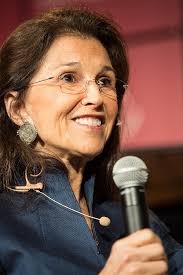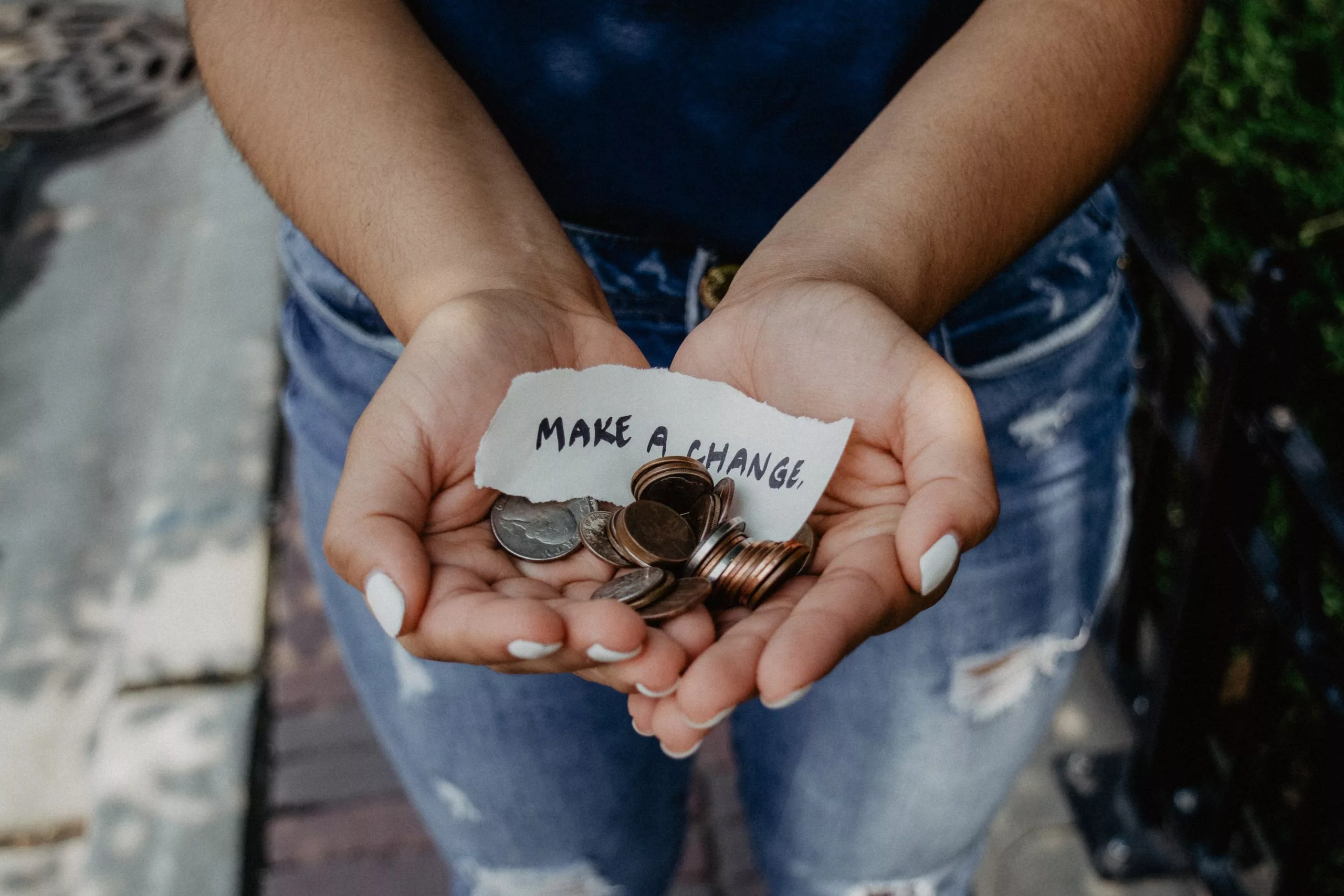The role of philanthropy has changed significantly over the last two decades. Throughout the recent development of the philanthropic sector, Jane Wales, Founder of the Global Philanthropy Forum (GPF) and Vice President of Philanthropy and Society at The Aspen Institute, has helped to shape the way that high-net-worth individuals (HNWI) are thinking about their philanthropic contributions to society.
The last 18 years have seen a shift from an emphasis on personal pet projects to more strategic and systems-oriented support. While the philanthropic sector is far from perfect, it has come a long way since the start of the GPF. Avary Kent, Co-founder of Conveners.org, conducted the following interview with Wales at this year’s GPF, where the focus was on reclaiming democracy and on the role of convening in the shift of these complex and systemic challenges facing our planet.

Jane Wales
What do you hope is possible in convening leaders in philanthropy?
Jane Wales: The Global Philanthropy Forum aims to build an ever-expanding and self-sustaining community — a peer-learning community that is all about improving practices, and emboldening and inspiring one another. But it is also about forming relationships — and I use the word relationships purposefully rather than partnerships. It is not just about undertaking activities together; it’s also about connecting as human beings and building friendships, building something more lasting than an event or undertaking with a beginning, middle, and end. I think all conveners hope for that.
As you think back to the last 18 years of GPF, what have you seen change?
JW: The community has both grown and evolved, which was our hope. If a community or network isn’t continually growing, it’s shrinking; standing still isn’t one of the options. When we started, our focus was exclusively on American philanthropists who would give globally. Now the GPF has affiliates in the global south and participants from around the world, those who will give where they made their wealth.
Because philanthropy itself is changing, so too is the GPF. Philanthropy was once primarily associated with the West. Yet it is growing and innovating in the global south — where age-old traditions of generosity are being combined with new forms of strategy. The GPF now has affiliates in the global south, including the Brazil Philanthropy Forum and the Africa Philanthropy Forum. And GPF members come from around the world.
Philanthropy is changing in other ways. It used to be seen as limited to grant-making. But in fact, GPF members define philanthropy as all private means of financing the public good — be it giving, investing, lending, or lifting up leaders.
Finally, we started when philanthropy did not have the role in Silicon Valley that it plays today. Remarkable innovators and entrepreneurs had created tremendous wealth at a young age. But that wealth served only as a marker of their success, rather than the indicator of the kind of positive change they could and would bring. They were serving a social mission, for they were creating jobs, and that is a social good. But not all were yet persuaded that philanthropy worked. They required evidence, and they needed each other.
Today it would be laughable to say that Silicon Valley innovators, investors, and entrepreneurs are not persuaded of philanthropy’s value. These folks are creating value again — this time it is measured in the number of children who have gained access to education, healthcare, and the number of parents who now have livelihoods, the natural resources protected, and the lives improved.
So much has changed. And so much more lies ahead.
We’ve seen a similar paradigm with Donor Advised Funds (DAFs), measuring their success by the assets they have accumulated rather than how much capital they have deployed.
JW: The incentive structure is what would drive that if you are rewarded for how much money you raise versus what you do with it. But I think most community foundations and other re-granters want both. They want to be able to raise sufficient funds to deploy those funds effectively. My understanding is that the payout from DAFs is considerably higher than the 5 percent required of foundations. So I am less skeptical than I otherwise might have been.
As of the last few years, we have seen the rise of authoritarianism around the world. What do you see as the role of philanthropy in restoring democracy?
JW: It’s central. Philanthropy and civil society not only solve problems, but they build social capital and citizen agency in the process. They model collaborative problem-solving and show that democracy works if you work it.
Maybe five years ago, I read an article in the New York Times that quoted one of the leading polling organizations, maybe Gallup, as having found that Americans did not trust their institutions of governance, and — far more concerning — that they did not trust one another. Millennial respondents trusted one another at a rate of something like 19 percent, while in the 1960s the polls showed that young American adults reported levels of trust at above 60 percent. I may have the precise numbers wrong, but the trend was clear and alarming, because trust provides the societal glue on which democracy depends.
It turns out that this is not just an American problem, but a global one, and populations living in democracies are among the most aggrieved. The Edelman Trust Barometer looks at 38 countries. And in 2018, the US experienced the most precipitous decline in levels of trust. According to that index we now rank 38 among the 38 polled.
So we’ve made the topic of trust a part of each conference, and explored the ways in which civil society, organizations, and the philanthropies that support them can rebuild social capital and citizen agency — the best antidotes for distrust and dysfunction.
Do you see opportunity for coordination or collaboration within the GPF community towards some of those strategic initiatives to reclaim the norms and institutions of democracy?
JW: What Larry said that you need both top-down and bottom-up solutions. And when it comes to setting norms — which was the focus of his remarks — you definitely need both. Take the example of advancing civil rights in the 60s. If that had been left solely to individual states we might still have pockets of segregation. It took extraordinary leadership at the local level, in churches, for example. But it also took national leadership.
There is a point where national leaders should establish norms and should set standards for what a decent society should do. That is certainly the case with race relations. Climate change is another example where changed minds and changed behavior is required on multiple levels — local, national and international — where standards are set and standards are met. And changed minds and changed behavior is needed in all three sectors — the public, private, and charitable sectors.
Sadly, we see national leaders deny the science of climate change. And you hear national leaders speak in dog whistles, stirring up racial hatred.
What inspired the launch of “conversation starters” with members of the World Affairs Council and GPF? And how do you see these more intimate discussions advancing insights into these complex challenges that are facing society?
JW: We have learned so much about how people learn over the last two decades. Your daughter will move at a swifter speed than you and at a gigantically swifter speed than I because we know how people learn and that they do not all learn in the same way. But one thing that individuals do tend to have in common is that they learn not from sitting passively and listening, but by touching, feeling, and doing. I don’t know anyone who doesn’t want to learn. It’s part and parcel of being human.
What is fun about “conversation starters” and other curated small group gatherings and salons is that we bring together no more than 25 people so that everyone speaks, tries out ideas, and finds commonalities in the process. It is very purposefully putting together people who may not know each other but who would really enjoy and learn from each other. It goes back to how we learn, how we form relationships, and how we continue to do both as a lifelong practice.
It also tests our ideological pluralism — our ability to listen respectfully to those with whom we disagree, while at the same time staying true to our values.
GPF is very consciously bringing together people with different political views at this time of tremendous polarization in our society. We want to defy the divides. We don’t want to become so polarized that we cannot solve problems together. I’ve found our conversation with Charles Koch and the leader of his foundation fascinating. We disagree on 18 things — trickle down economics or the Federalist Society’s approach to the Constitution, for example. But we do agree that criminal justice reform is essential; failure to act is inhumane. We are not only incarcerating our youth, but once they have served, we are denying many of the previously incarcerated housing, a job, or their right to vote. Charles Koch was as committed to solving this problem as Darren Walker (of the Ford Foundation). And together they made a difference. I don’t think we have the luxury of refusing to work together on those issues on which we can agree. What’s next? Comprehensive immigration reform and a path to citizenship for dreamers. Children are being traumatized by being separated from their mothers at our border. Surely we can work together to solve that problem. Think of all of the extraordinary philanthropists that you know well and who I’ve gotten to know who share that particular goal.
Bring those people together and you will get change. Doesn’t have to be two people as well known as Charles Koch and Darren Walker. Any two people can effect change.
As Brene Brown shares, “It’s really hard to hate people close up.” It’s really easy to denigrate and otherize the Koch brothers from far away when all you are reading are these bite-sized things on social media, it’s a very different thing to be in conversation and realize there is a nuance here, and maybe there is still disagreement.
JW: Or maybe you disagree about 18 points, but you agree on one.
Let’s go for that one, which gives us a path forward out of this gridlock.
JW: What is behind his movement is a sense that limited government leads to a much greater opportunity to realize individual potential. Often the disagreement between the right and the left is about the relationship between the government and the governed. What conservatives most dislike about Obamacare is the government mandate. What’s wrong with “Race To The Top” is that it is the government making curriculum choices rather than the teacher or the parent. If you can get past and accept that we disagree on that, and nonetheless we can agree on solutions. First agree on the problems and then agree on solutions.
It feels like going back to the theme of reclaiming democracy that is the missing ingredient in moving the conversation forward. It felt like politics used to be that we agreed that there was a problem, we may disagree on how we are going to solve it but at least we could have a conversation about how. It feels like more recently we are not even in the same room in terms of what the problem is.
JW: Look at the way that we’ve structured ourselves as a society and the level of sorting that has occurred. We are sorted by income, by education levels, by political party. When I moved into my house in DC back in 1992, I worked in the Clinton administration, on the National Security Council and OSTP. My neighbor to the right had worked for George Herbert Walker Bush. My neighbor to my left had worked for Ronald Reagan. We disagreed on many policy issues, perhaps most. But we could see that we shared a deeply held value — a belief in service. And that was enough of a basis not only for civil discourse — but for friendship. I fear those days may be behind us in Washington and throughout the country.
If you never meet people with another point of view, you don’t have to engage in democratic decision-making. You don’t have to compromise. You don’t have to work things out. But working things out is what democracy is all about.
Philanthropy and business are more interlinked. We have Lyft, Uber, Airbnb, Slack, Pinterest, Levi-Strauss — all of these different companies are going public. It is estimated there will be 10,000 new multi-millionaires in San Francisco alone in the next year. These are all business leaders, entrepreneurs, innovators, and change agents who want to see something different in the future. I’m curious, how are you hoping they might be able to engage the philanthropic community to unlock their greatest impact? Where is this change in identity going for them?
JW: This is similar to what things looked like in 2001 in Silicon Valley when the GPF was launched. But the one big difference is that there will be in place the beginnings of true knowledge. There will be a much wider range of vehicles for giving, investing, and learning. There will be peers from all over the world to guide them. We will have the beginnings of an efficient knowledge marketplace in which the knowledge that is resident in philanthropies, aggregated funds, and networks of givers can meet the demand of HNWIs in search of impact.
I also think that people in the private sector are increasingly aware of the social role their companies play beyond being a revenue generator — this sense of having an obligation to the greater good. They see themselves as social actors, which of course they are. That is true among the leadership of these companies, but it’s also true among their employees. The CEOs want to attract the top 5 percent of the graduating class at MIT, CalTech, etc., but potential employees want to work for companies that are good social actors. The need to attract and retain talent is one of many reasons I think this trend is sustainable.
There is now an infrastructure of social change networks like the GPF, Skoll Social Entrepreneurs, Philanthropy Roundtable, and others. And there is a market. One would think that that market would become saturated, and each network would be weakened as a result. But that has not occurred. The hunger for knowledge, for connection, for impact is so large that each is needed, each is providing a service, and each is thriving. It gives everyone a place to go, a community to join and to help shape. Rather than having competitive relationships, we have collaborative relationships, in large measure because of you and Conveners.org. That is what your work is based on, this belief that collaboration is going to help us to achieve the social goals that we have.
As we think about the Conscious Company community and the World-Changing Women’s Summit, what does conscious leadership mean to you?
JW: When you are talking with someone who thinks and feels like you do, things go unstated because they are understood. They are shared values. The same thing that makes you do what you do is what makes me do what I do. People who create and take joy from networks like the Global Philanthropy Forum, conversation starters. and Conveners.org do so because they love to enable others, to match-make, to identify and to introduce people to each other and then to disappear, allowing their creative juices, their generous intentions, and their combined smarts to make a whopping difference. That takes collaborative leadership, but also conscious leadership. And you’ve got it in spades.
We are facilitators rather than the rockstars. You need the rockstars too, but that’s a different job. The joy of enabling others to do what they do best is a special kind of satisfaction, and turns out to be needed.
What do you see as the future of convening for social and environmental impact?
JW: It will never stop. Why would it stop? It is both fun and you get things done. It is deeply satisfying.
Is there anything else that is coming to mind that you’d like to share?
JW: As you know, I am leaving the World Affairs Council after serving as CEO for 20 plus years. I love the organization and the people who form that very special community. And the friendships I have both within and outside of the organization will continue to run deep. There is nothing like being able to call a friend and collaborator and take that impromptu walk along Crissy field. But it is time for another endeavor, and I am also hugely excited about the role that awaits me at The Aspen Institute. It has a new CEO who is terrific and a mission that is inspiring, for it offers a neutral forum for leaders of all sectors to solve problems together. It’s where I belong at this moment. But I will always be in touch, for the GPF community will remain home; its members will always be family.






